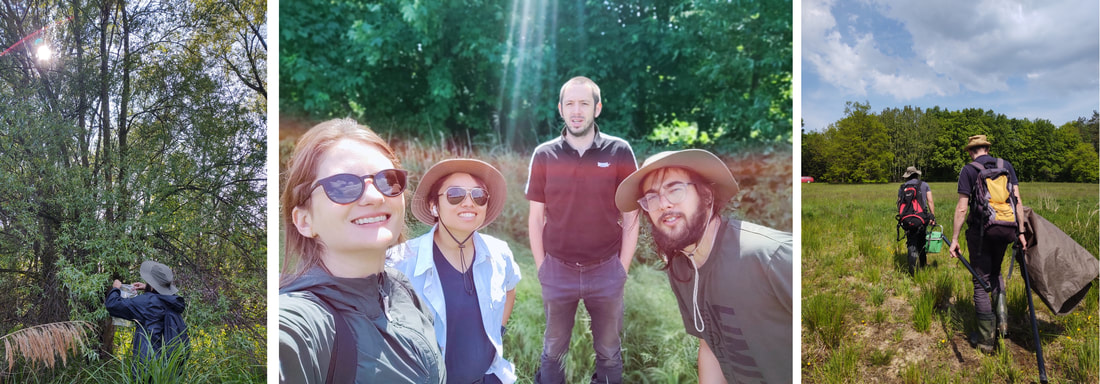|
In the past month, we kickstarted the first year of field work within a project that aims to explore adaptive hybridization in willows. Willows belong among some of the most frequently hybridizing plant species and some of their hybrids are extremely abundant in natural communities. We thus want to explore if the frequent hybridization in willows is fuelled by the adaptive value of hybrids in face of biotic and abiotic pressures. We will dissect how new combinations of parental traits help hybrid willows cope with biotic and abiotic stress and we hope to show that hybrids serve as a source of local adaptions in the genus. To do so, we conducted the first part of the field work in Central Bohemia in the Elbe River basin. We sampled the willows for leaves that we will use for metabolomics and genomics analyses. We also explored the soil conditions and communities of insect herbivores harboured by hybrids and their parental species. We will continue to conduct field work in South Bohemia and in Austria in the coming months.
0 Comments
Leave a Reply. |
New PublicationsMarinček P., Léveillé-Bourret É. , Heiduk F., Leong J.V , Bailleul S.M., Volf M., . Wagner N.D. (2024) Challenge accepted: Evolutionary lineages versus taxonomic classification of North American shrub willows (Salix). the American Journal of Botany, https://doi.org/10.1002/ajb2.16361
Archives
June 2024
|
Proudly powered by Weebly



 RSS Feed
RSS Feed